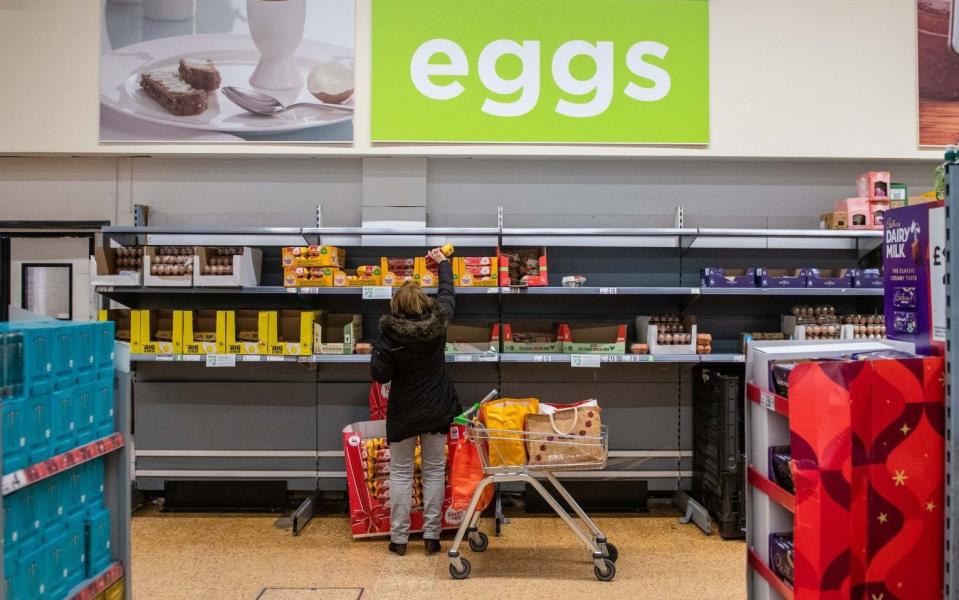UK food prices soar to a new record high

Egg shortages helped drive food inflation to a record high in November, while rising meat and dairy prices mean the cost of a Christmas dinner is set to jump sharply this year.
Food prices climbed 12.4pc from a year earlier, according to the British Retail Consortium (BRC), accelerating from an annual rate of 11.6pc in October.
November’s reading is the highest food inflation rate since records began in 2005. The BRC said the increase was driven by a jump in the cost of eggs, meat and dairy.
Half a dozen medium Burford Brown eggs in Waitrose now cost £2.90, compared with £2.65 just weeks ago, while four pints of semi-skimmed milk now costs £1.65, compared with £1.45 this summer.
Prices are climbing as farmers pass on the cost of rising energy, feed and staff bills.
Inflation is particularly acute for eggs amid a national shortage. Rising costs have led fewer laying hens to be reared, while the worst ever outbreak of deadly avian flu has further thinned flocks.
The sharp drop in the supply has forced some supermarkets to ration egg sales. Prices have climbed 20pc in just a fortnight as the supply crisis deepens.
Helen Dickinson, chief executive of the BRC, said winter looked “increasingly bleak”.
“While there are signs that cost pressures and price rises might start to ease in 2023, Christmas cheer will be dampened this year as households cut back on seasonal spending in order to prioritise the essentials.”
A separate survey showed business confidence has fallen to its lowest level since last year’s lockdowns as businesses across the country battle higher costs and a worsening outlook for consumer spending.
Confidence slumped by 5 points to 10pc in November, according to the Lloyds Bank Business Barometer. That is far below the long-term average of 28pc and the lowest level since the height of the lockdown in February last year. Optimism about the economy has now been in decline for six straight months.
“The fall in confidence shows just how tough it is for businesses right now,” Paul Gordon at Lloyds said. “Pressures from rising costs continue and businesses are starting to feel the burden of higher energy bills.”
Hiring intentions fell to an 18-month low in November, with one in four businesses expecting to cut staff levels. Separate polling for YouGov found three in ten businesses are expecting to make layoffs.
Tens of thousands of people have already been laid off in the tech sector in recent weeks, as rising interest rates and a darkening economic outlook ramp up pressure. However, vacancies are still near a record high, meaning workers are in a better position than during previous recessions.
YouGov's poll found that 43pc of businesses said the recent Autumn Statement had left them worse off.
